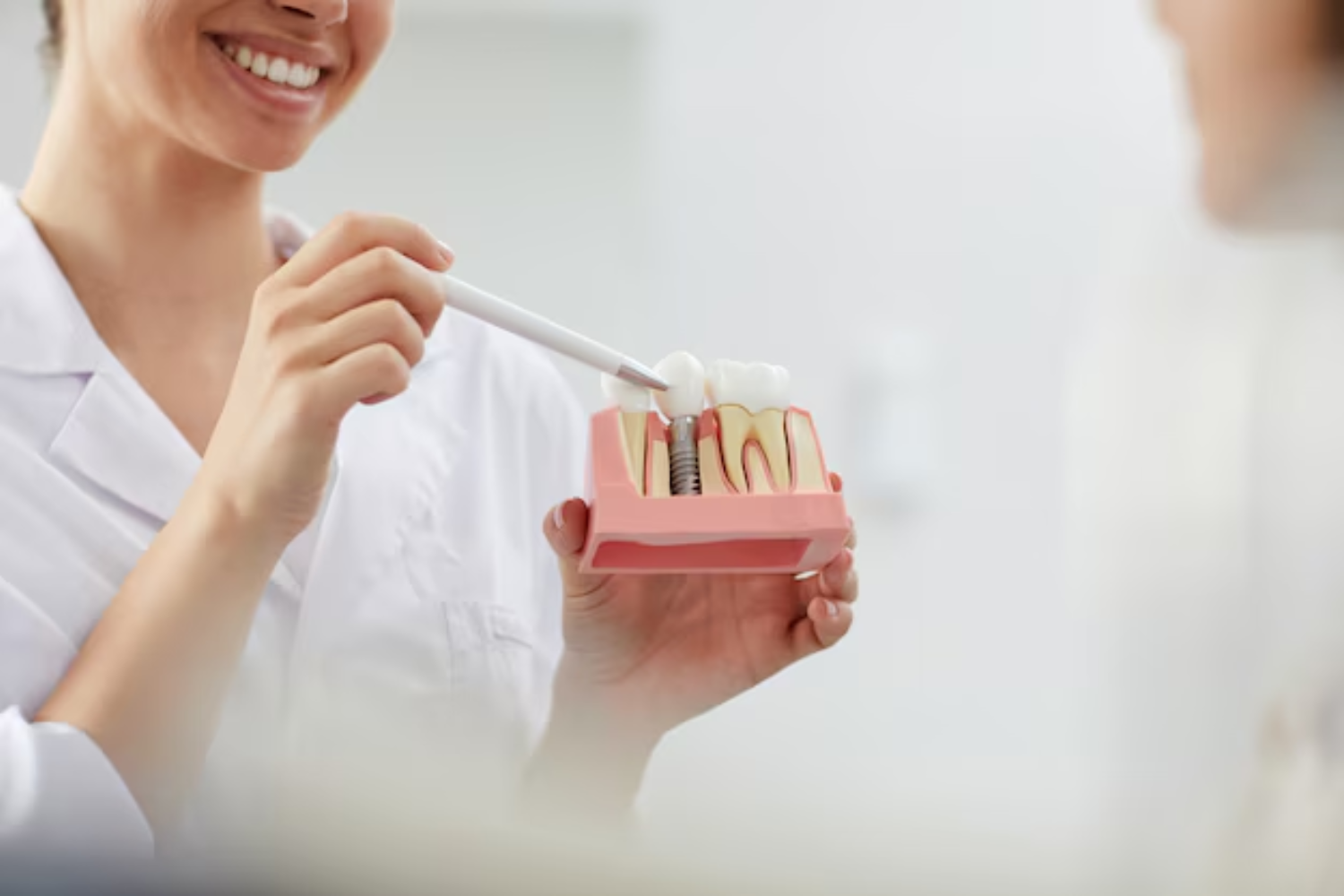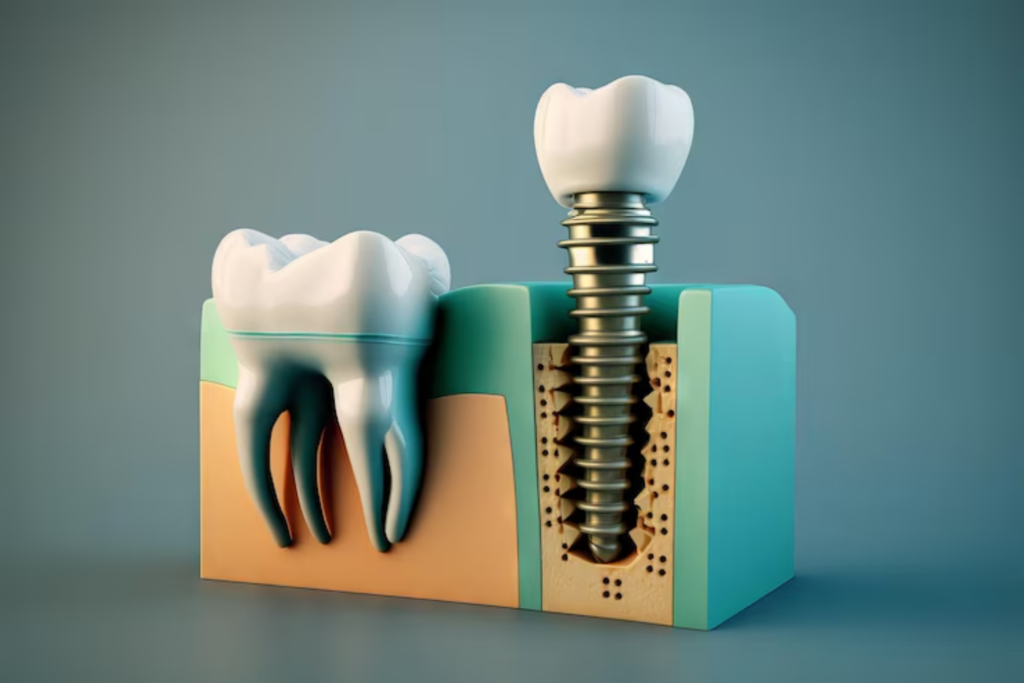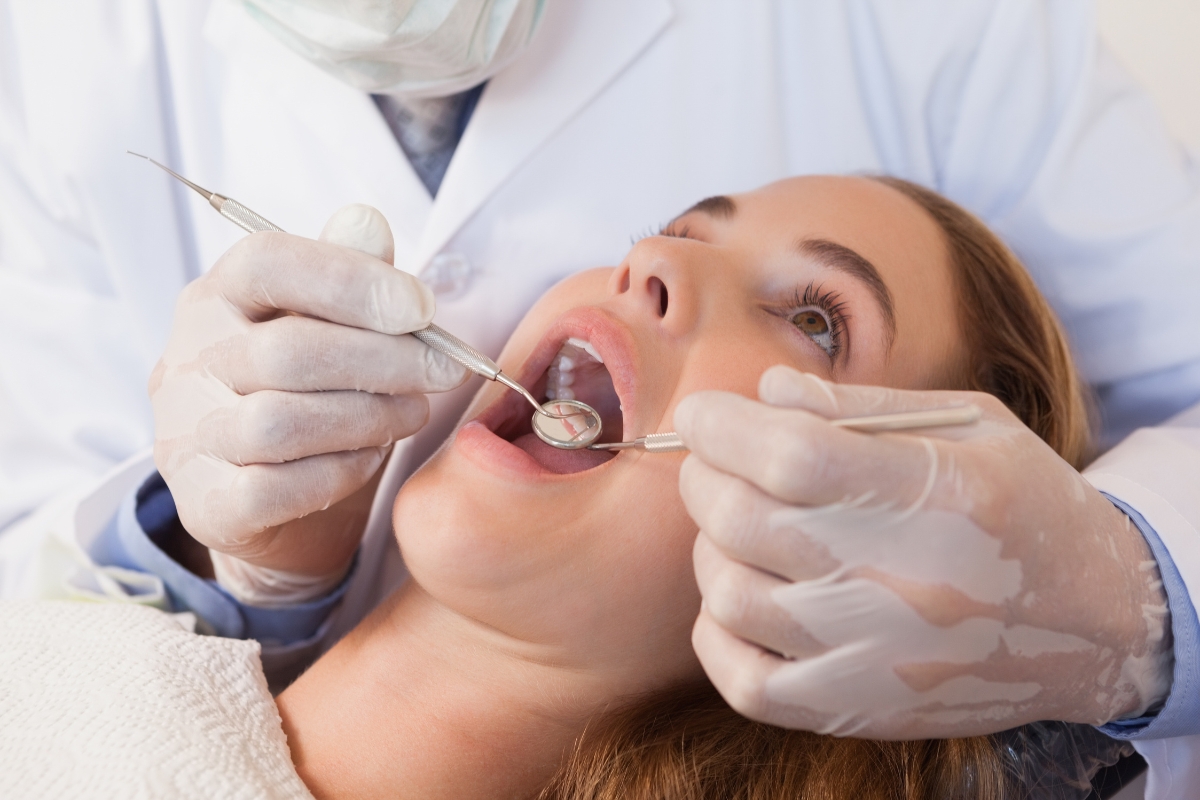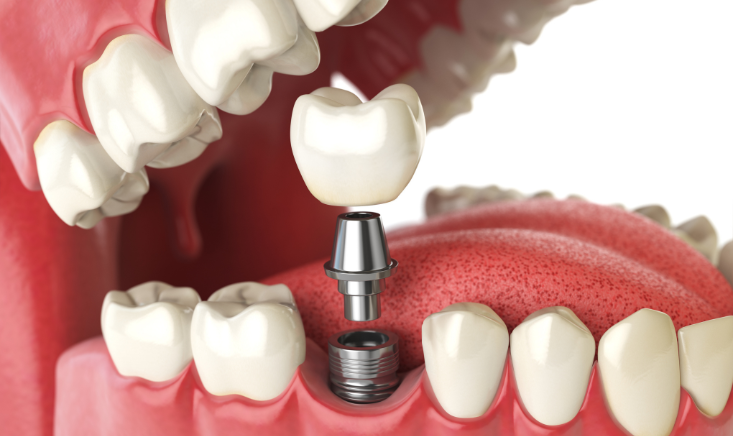Same Day Emergency Appointments Available!
How to Care for Your Dental Implants: Essential Tips for Longevity
Union, NJ
Dental implants are a revolutionary solution for replacing missing teeth, offering a natural appearance and functionality that can last for decades with proper care. However, the longevity and success of dental implants depend significantly on how well you maintain them. In this comprehensive guide, we’ll delve into essential practices for caring for your dental implants, ensuring they remain a durable and effective part of your oral health.
Understanding Dental Implants
Before we discuss care tips, it’s essential to understand what dental implants are and how they function.
What Are Dental Implants?
Dental implants are artificial tooth roots, usually made of titanium, that are surgically inserted into the jawbone. They serve as a stable base for attaching replacement teeth or bridges. The implant itself consists of three main parts:
- Implant Fixture: The titanium post is embedded into the jawbone.
- Abutment: The connector that sits on top of the implant fixture and holds the replacement tooth.
- Crown: The visible part of the implant that mimics the appearance of a natural tooth.

How Do Dental Implants Work?
Dental implants work by fusing with the jawbone through a process called osseointegration. This integration provides a stable foundation for the artificial tooth, allowing it to function and look like a natural tooth. The success of this process depends heavily on good oral hygiene and regular dental visits.
Best Practices for Caring for Dental Implants
Proper care of your dental implants is crucial for their longevity and functionality. Here are essential practices to follow:
1. Maintain Excellent Oral Hygiene
Good oral hygiene is fundamental to the health and longevity of dental implants. Follow these tips:
- Brush Twice Daily: Use a soft-bristled toothbrush and fluoride toothpaste to brush your teeth at least twice a day. Focus on the implant area, brushing gently but thoroughly to remove plaque and prevent buildup.
- Floss Daily: Flossing helps remove food particles and plaque from between your teeth and around the implants. Use floss specifically designed for implants or an interdental brush for best results.
- Use Antimicrobial Mouthwash: Rinsing with an antimicrobial mouthwash can help reduce bacteria in your mouth and promote gum health. Choose a mouthwash that is alcohol-free to avoid drying out your mouth and irritating your gums.
2. Regular Dental Check-Ups
Regular visits to your dentist are crucial for maintaining your dental implants:
- Schedule Routine Check-Ups: Visit your dentist at least every six months for routine check-ups and professional cleanings. Your dentist will monitor the health of your implants, check for signs of gum disease, and ensure that your implants are functioning correctly.
- Professional Cleanings: During your check-ups, professional cleanings will remove tartar and plaque buildup that regular brushing and flossing may not address. This helps prevent implant failure and gum infections.
3. Avoid Hard and Sticky Foods
Certain foods can impact the longevity of your dental implants:
- Limit Hard Foods: Avoid biting into hard foods like ice, nuts, and hard candies, as they can damage the crown or cause stress on the implant.
- Be Cautious with Sticky Foods: Sticky foods like caramel or taffy can pull on the crown and may cause it to come loose. Chew these foods with caution or avoid them altogether.
4. Quit Smoking
Smoking is detrimental to your overall oral health and can adversely affect dental implants:
- Impact on Healing: Smoking can impair the healing process after implant surgery, reducing the chances of successful osseointegration.
- Increased Risk of Infection: Smokers are at a higher risk of gum disease and implant infections, which can lead to implant failure.
- Quit for Better Health: If you smoke, consider quitting to improve your oral health and enhance the longevity of your dental implants.
5. Protect Your Implants During Physical Activities
If you participate in sports or activities that pose a risk to your teeth:
- Wear a Mouthguard: Protect your dental implants and natural teeth by wearing a custom-fitted mouthguard during physical activities. This can prevent injury and damage to your implants.
6. Monitor Your Implant Health
Be vigilant about any changes or issues with your implants:
- Watch for Signs of Infection: Symptoms such as swelling, bleeding, or pain around the implant site could indicate an infection. Contact your dentist if you experience any of these symptoms.
- Check for Looseness: Occasionally check if the crown feels loose or if you notice any unusual changes in how your implant feels. Early detection of issues can prevent more significant problems.
Caring for your dental implants is essential for ensuring their longevity and functionality. By following the best practices outlined in this guide, you can keep your implants in excellent condition and enjoy a healthy, confident smile for years to come.
Maintain good oral hygiene, visit your dentist regularly, avoid harmful habits, and be mindful of potential issues. If you have any concerns or questions about your dental implants, don’t hesitate to reach out to your dental care provider for personalized advice and support.
With proper care, your dental implants will continue to provide the stability and natural appearance you desire, enhancing your overall oral health and quality of life.
FAQs About Caring for Dental Implants
1. How Long Do Dental Implants Last?
A: Dental implants can last 20 years or more with proper care. The longevity of implants depends on factors such as oral hygiene, lifestyle choices, and regular dental visits.
2. Can I Use Whitening Products on Implants?
A: Whitening products typically do not affect dental implants. However, if you use whitening products, ensure they are suitable for dental work and consult your dentist for advice.
3. What Should I Do If My Implant Feels Loose?
A: If you notice that your implant feels loose, contact your dentist immediately. Loose implants could indicate issues such as implant failure or bone loss.
4. Are Dental Implants Susceptible to Cavities?
A: Dental implants themselves cannot get cavities, but the surrounding natural teeth and gums can. Maintaining good oral hygiene is essential to prevent cavities and gum disease.
5. How Can I Prevent Implant Infection?
A: Preventing implant infections involves maintaining excellent oral hygiene, avoiding smoking, and attending regular dental check-ups for professional cleanings and monitoring.
New Patients & Emergency Appointments Welcome!



